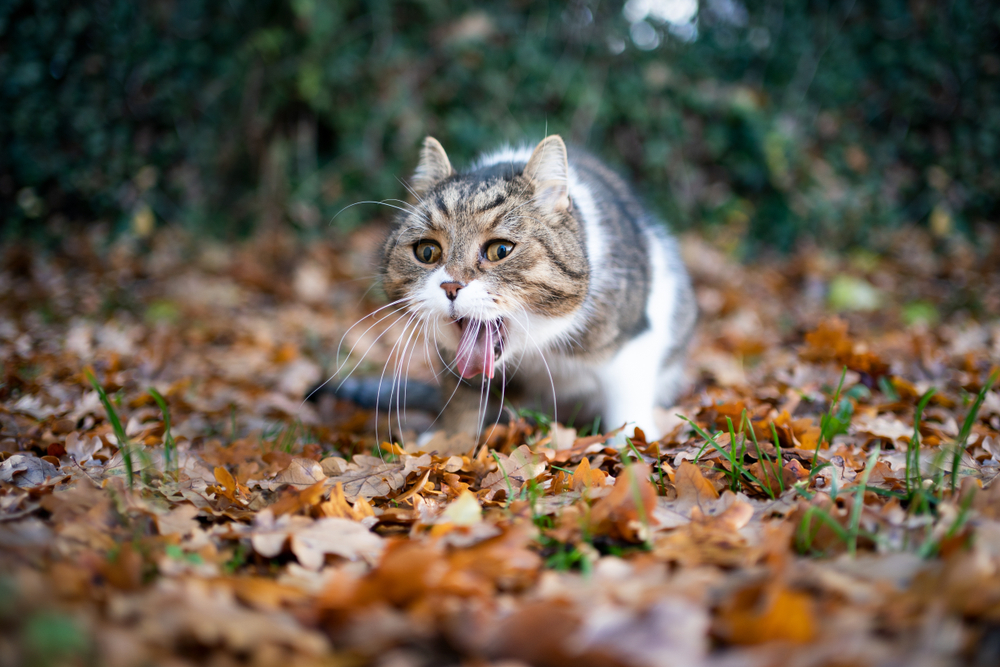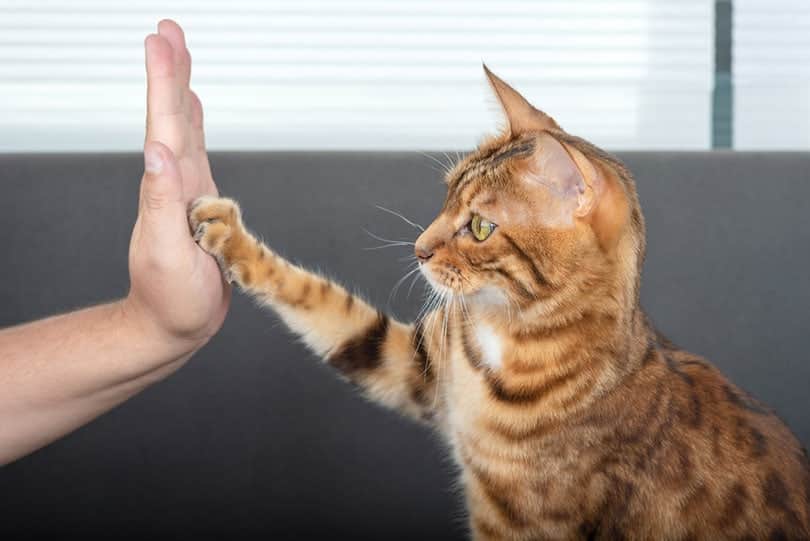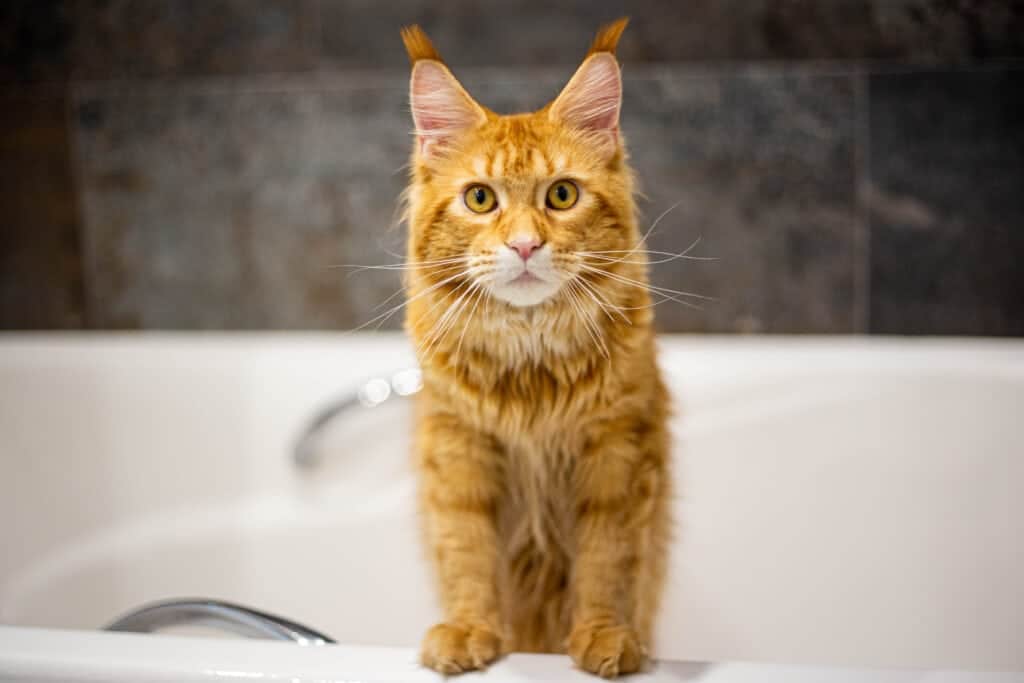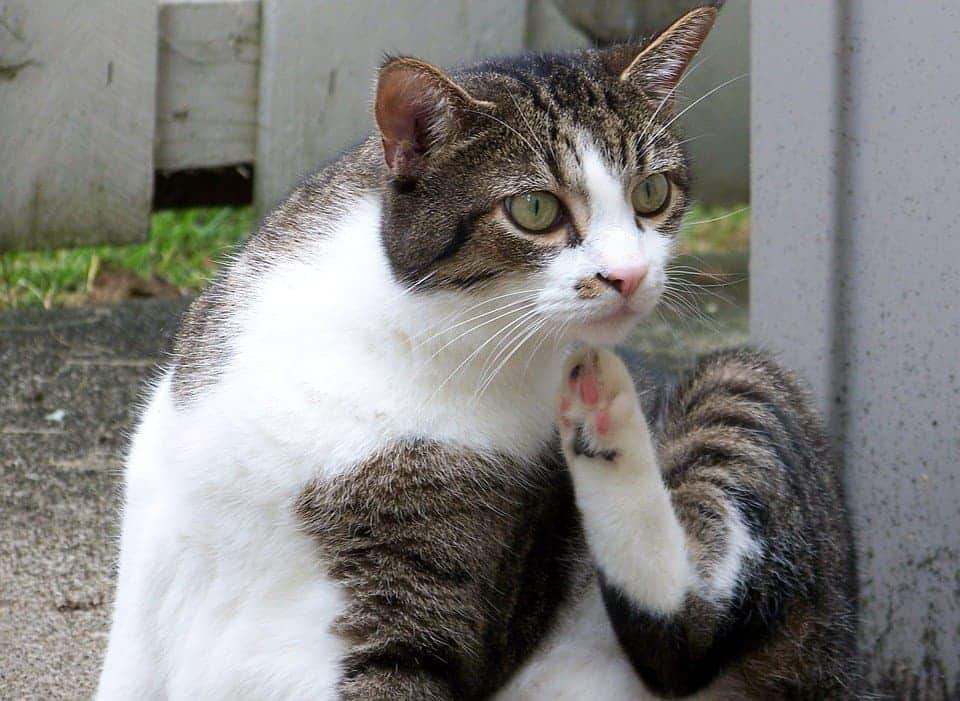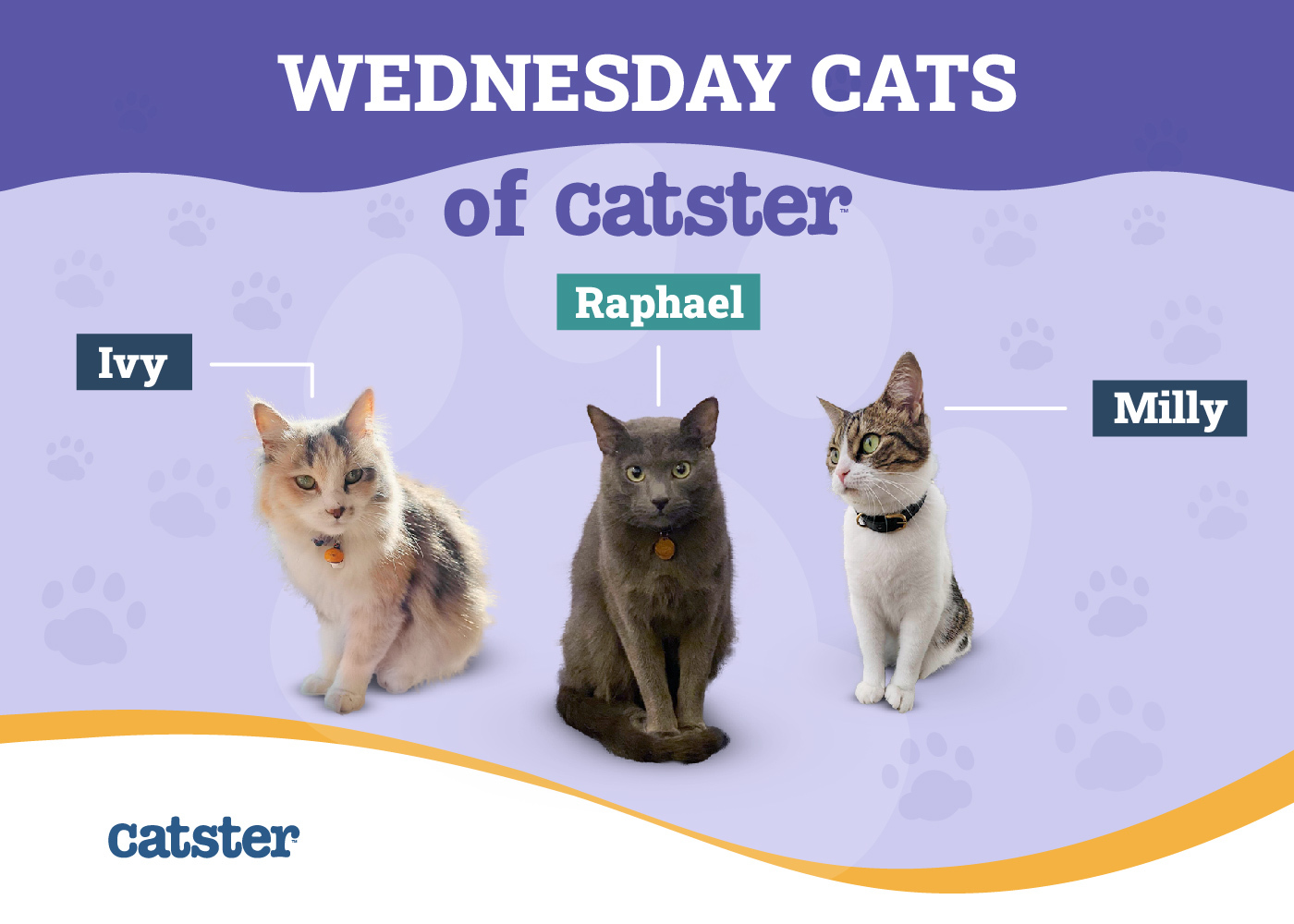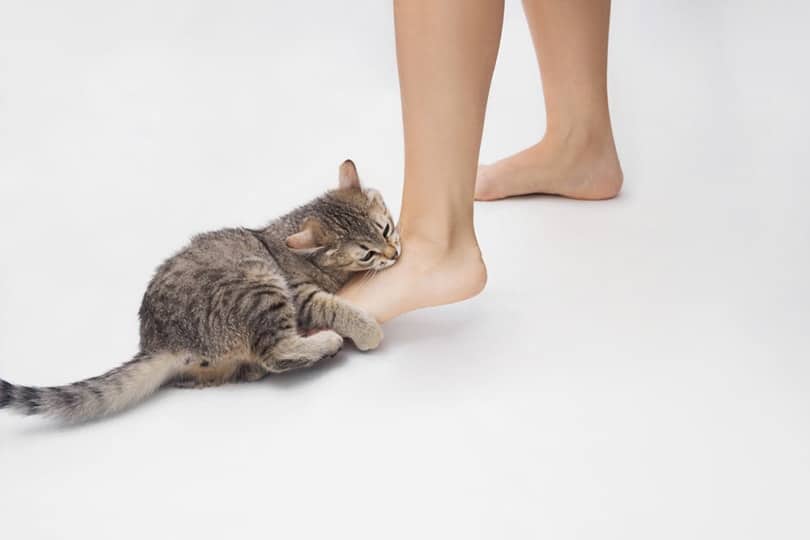Although cats descended from wild felines that survived by consuming small mammals, fish, and reptiles, they have sensitive stomachs that do not always agree with them. Occasional vomiting is not a cause for concern, but excessive vomiting requires veterinary attention. Vomiting has several causes, and some are accompanied by other troubling signs. It’s vital to report any additional problems when speaking to the doctor. If your cat is vomiting up clear liquid, you can read on for the possible causes and treatments.

The 10 Reasons Why Cats Throw Up Clear Liquid
1. Diet Changes
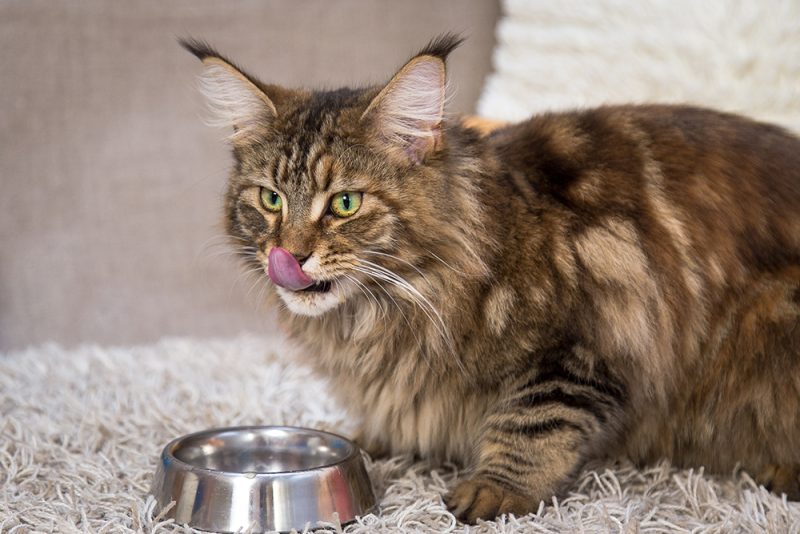
Some felines take longer than others to adapt to a new brand of cat food. An abrupt change can cause the animal to vomit clear fluid or liquid with pieces of digested food. Also, cats that eat too fast may throw up the unsightly liquid. Luckily, you can help your pet with either problem when the cause is not medical-related.
When you decide to change your pet’s food, introduce the new meals gradually. Keep using the old brand but add a small amount of the new food and increase the portion each day. If your cat stops eating as much, you can reduce the new amount until your cat eats a normal amount.
If you have a fast eater, you can place the cat food in puzzle boxes or maze bowls to prevent the animal from engulfing their entire meal. Puzzle boxes also make mealtime more challenging, and some cats enjoy meals that they have to work for.
If you need to speak with a vet but can't get to one, head over to PangoVet. It's an online service where you can talk to a vet online and get the advice you need for your pet — all at an affordable price!
2. Hairballs
Cats are meticulous groomers, and their barbed tongues help grab loose hair from their coats. Most hair passes through the intestinal tract and is expelled in the feces. When the hair collects in the cat’s stomach, it’s usually vomited out. Hairballs look like gray cylindrical tubes, and they’re often vomited with clear fluid. Cats with longer hair and those that groom frequently are more vulnerable to hairballs.
Coughing out a hairball is not uncommon, but if your cat expels hairballs frequently, your vet may suggest switching to a hairball formula cat food. Non-prescription hairball meals are not too expensive, but a prescription diet typically costs more than average dry brands.
Your vet may also prescribe a petroleum-based hairball treatment that lubricates the hair when swallowed so it can easily pass through the stomach. In some cases, the vet can prescribe prescription food additives to help expel hairballs through the feces. Grooming your long-haired cat is another option for reducing hairballs.
3. Drinking Too Much Water
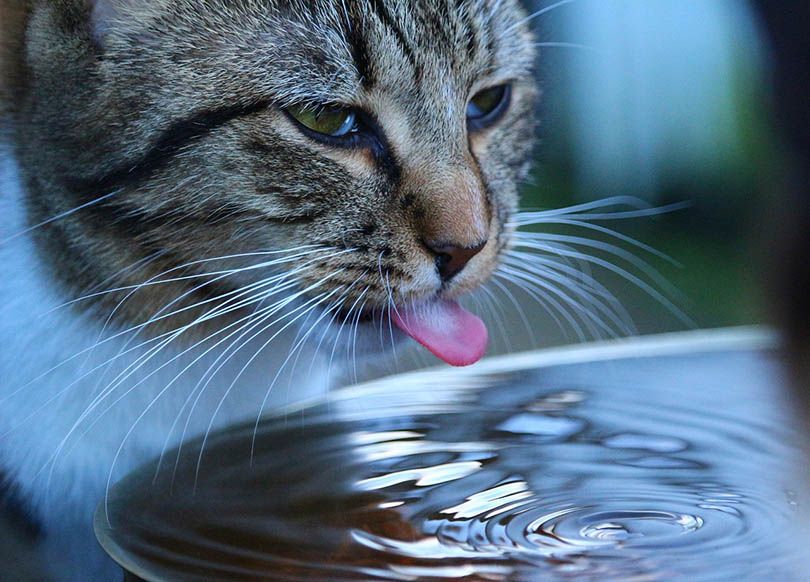
If your cat drinks too much water on an empty stomach, it can vomit clear fluid. Cats that drink too much water daily may suffer from a medical condition. Most cats are not heavy drinkers, and some pet parents struggle to convince their pets to drink from water bowls. Frequent drinking and vomiting are signs that your cat should visit the veterinary clinic. Kidney disease and diabetes mellitus are two issues that can cause excessive water drinking.
After you report your cat’s signs to the doctor, they’ll do a complete examination and may decide to perform a urinalysis, blood tests, or X-rays to check for severe disease.
4. Indigestion
Like us, cats sometimes experience indigestion. When cats do not follow a routine feeding schedule or skip meals, the hydrochloric acid in their stomach can irritate them and cause vomiting. The liquid may be clear or yellow.
Establish a regular feeding schedule and try to avoid skipping meals. To ensure your pet’s stomach does not stay empty for long, you can divide the same daily portion into several meals. This may not be feasible in all households, but it’s ideal for pet parents who work from home.
5. Bilious Vomiting Syndrome
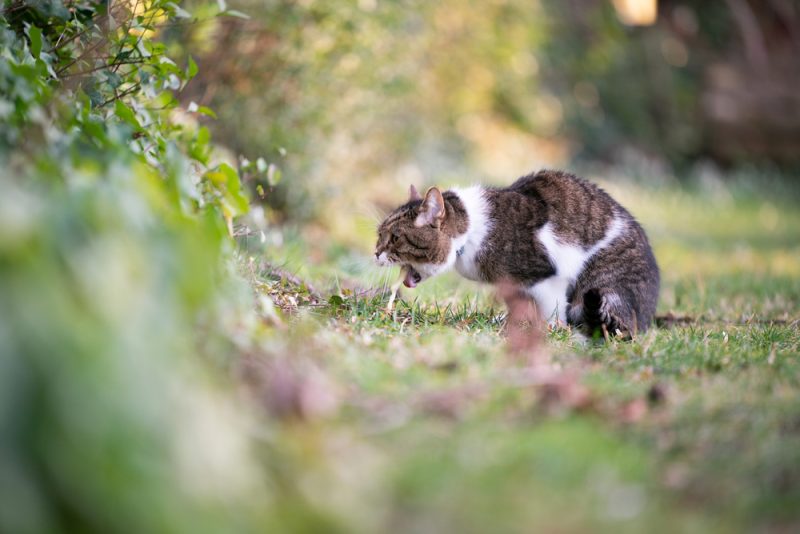
Vomiting clear liquid could be a sign of bilious vomiting syndrome. However, the vomit may include mucus with an orange or brown color. It typically occurs when the cat’s stomach is empty, and most cases occur in the morning when the cat has waited longer to eat the next meal.
After a full examination, your vet may decide to run additional tests to rule out serious conditions. If bilious vomiting syndrome is the diagnosis, most doctors will suggest increasing feeding and possibly leaving food out all day to prevent an empty stomach. Medications such as omeprazole, famotidine, maropitant, or metoclopramide can also be prescribed.
6. Toxin Ingestion
Curious cats are notorious for playing with and chewing on items that fascinate them, but some substances such as garden chemicals, cleaners, and automotive materials are toxic and even deadly to cats. Poisoning can cause vomiting, diarrhea, excessive thirst, hyperactivity, drooling, muscle tremors, coma, and seizures.
If a specific poison is identified, a veterinarian will use an antidote to counteract the effects, but they may also employ these treatments:
- Intravenous fluids
- Inducing vomiting
- Using activated charcoal to absorb toxins
- Medications to treat other signs
- Repeat visits to monitor the cat’s progress
7. Gastritis
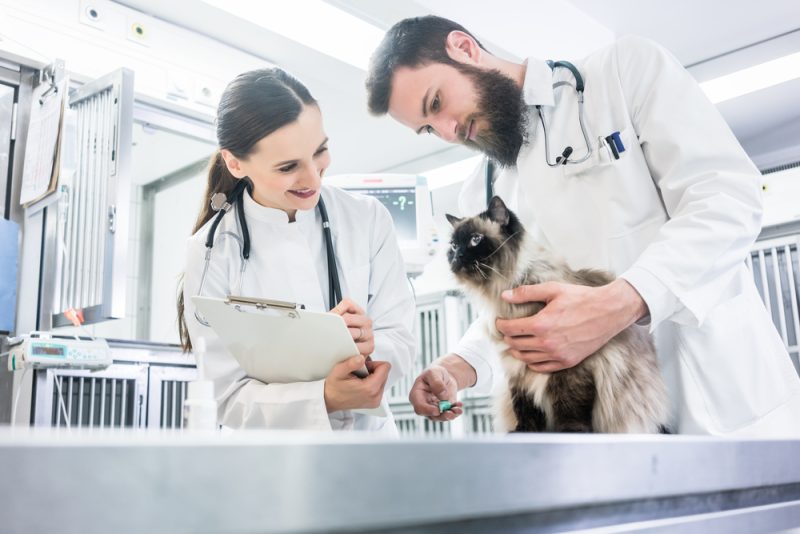
Gastritis occurs when the stomach’s lining becomes inflamed, and the condition can be acute or chronic. Acute infections are not always diagnosed because some cases subside after 24 hours. However, chronic gastritis lasts longer and can be caused by several problems, including food allergies, parasites and chronic disease.
Veterinarians treat chronic gastritis by determining the cause of the condition, but some of the treatment options may include:
- Feeding low-fat meals
- Restricting meals for several hours
- Fluid therapy
- Medications to prevent stomach ulcers
- Anti-vomiting medications
- Bland gastrointestinal diets
8. Kidney Disease
Possible signs of acute kidney disease and chronic kidney disease include vomiting, and sometimes, the vomit can be transparent with traces of blood. Acute kidney disease is possibly reversible, but there is no cure for the chronic illness. However, treatments for chronic kidney failure can allow the cat to live several years.
Depending on the type of disease and causes, veterinarians use several techniques to treat renal failure, including:
- Vitamin supplements
- Prescription low protein/low phosphorus diets
- Potassium supplements
- Antibiotics
- Anti-vomiting drugs
- Blood pressure medication
- Phosphate binders
Chronic renal failure is a progressive illness that can take years before signs appear.
9. Intestinal Parasites
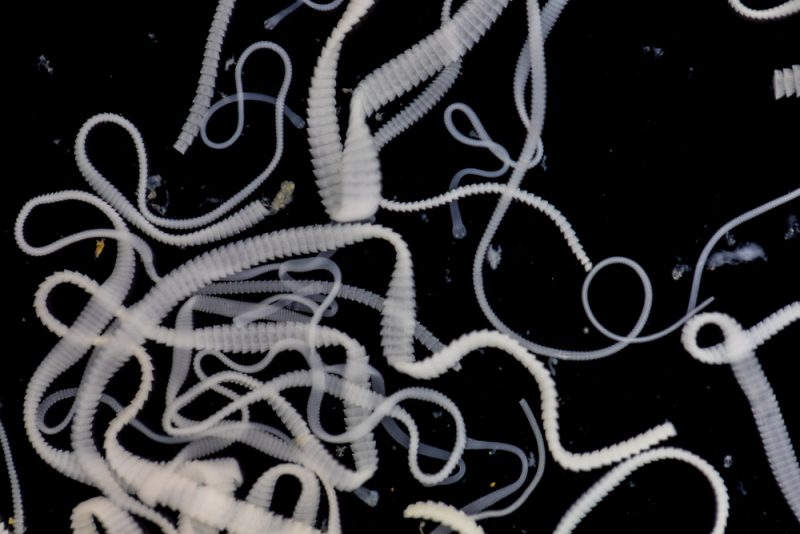
Intestinal parasites can be passed to kittens from their mothers, but any feline can become infected with them by consuming carrion and encountering infected animals or feces. Common signs are diarrhea and vomiting, but they can worsen if the cat is not examined by a doctor.
Parasites such as hookworms, roundworms, and coccidia can be expelled with deworming medications. Although over-the-counter treatments are available, you should not use a drug until the veterinarian determines which parasite is causing the signs. Promptly treating the parasites can prevent further complications.
10. Cancer
Felines are less likely to get cancer than dogs, but lymphoma is the most common type seen in cats. Gastrointestinal lymphoma can cause diarrhea and vomiting, and it’s often connected with the feline leukemia virus (FeLV). FeLV vaccinations can reduce the chances of developing lymphoma.
Early detection and treatment are vital for the cat’s health. Compared to the cancers affecting dogs, cat cancers seem to be more aggressive, but veterinary scientists have made advances in cancer treatments. Some of the treatment options include chemotherapy, surgery, and radiation therapy.

Conclusion
Caring for a cat is usually a rewarding experience, but a sick cat can worry you like any member of your family. Cats vomiting clear liquid can be a temporary event caused by something simple like indigestion or drinking too fast. If your pet vomits repeatedly, you should take it to the veterinary clinic. Determining the cause is critical to the treatment and recovery, and some vet offices will see patients the same day when the issue is urgent.
You might also like:
- What Does Pet Insurance Cover for a Cat? Everything You Need to Know!
- Why Does My Cat Have Diarrhea? 9 Possible Reasons
- Best Cat Foods for Hairballs – Reviews & Top Picks
Featured Image Credit: Nils Jacobi, Shutterstock

